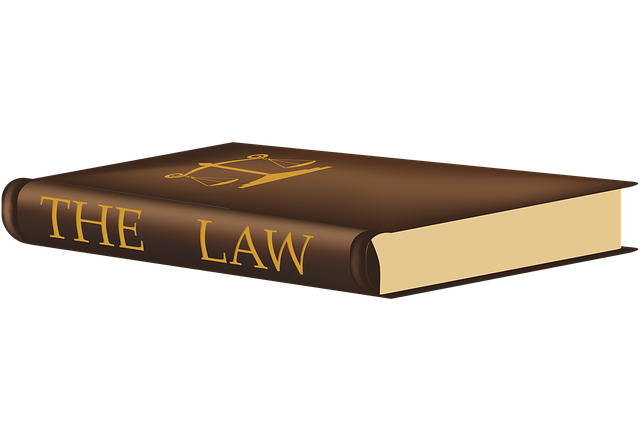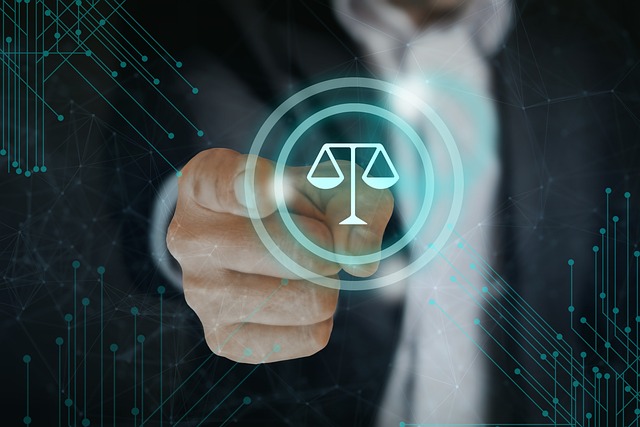The RF Securities Industry Regulation is a critical framework ensuring market fairness, transparency, and integrity, impacting operations, investor protection, and economic growth. Mirroring criminal procedural rights like the Miranda Rights, these regulations emphasize due process and fairness. Understanding Miranda Rights is essential for both attorneys and clients in financial crime investigations, guiding voluntary and admissible statements in court. Invoking Miranda Warnings during interrogations safeguards suspects' constitutional rights to remain silent, consult with an attorney, and have legal counsel present, significantly influencing the outcome of securities fraud or financial crimes cases. Expertly utilizing these rights in defense strategies can protect clients' interests and shape case outcomes.
The RF Securities Industry is a high-stakes environment where robust regulation is essential. This article delves into the critical aspect of Miranda Rights in Criminal Proceedings as they pertain to the financial sector. We explore how these rights, originally designed for criminal investigations, play a pivotal role in ensuring fairness and protecting investors within securities fraud cases. Understanding when and how to invoke Miranda is key to navigating the legal complexities of this dynamic industry.
- Understanding RF Securities Industry Regulation: An Overview
- The Role of Miranda Rights in Financial Crimes Investigations
- Ensuring Fairness: How Miranda Rights Protect Investors
- Navigating Legal Complexities: When and How to Invoke Miranda
- Case Studies: Applying Miranda Rights in Securities Fraud Scenarios
Understanding RF Securities Industry Regulation: An Overview

The RF Securities Industry Regulation is a critical framework designed to ensure fairness, transparency, and integrity within the financial markets. It encompasses a comprehensive set of rules and guidelines that govern various aspects of securities trading, from initial public offerings to post-trade activities. Understanding this regulatory landscape is essential for all participants in the industry, as it dictates how businesses operate, protects investors, and maintains market stability. This regulation goes beyond mere compliance; it fosters trust, encourages investment, and facilitates economic growth.
At the heart of these regulations lie protections for individuals’ rights, including the Miranda Rights in Criminal Proceedings, ensuring that suspects are informed of their legal entitlements during investigations. This parallel between criminal and financial regulatory frameworks underscores the importance of due process and fairness, even as they operate within distinct domains. With an unprecedented track record of success, effective regulation enables regulators to navigate all stages of the investigative and enforcement process, safeguarding not just investors but also the integrity of the industry itself.
The Role of Miranda Rights in Financial Crimes Investigations

In financial crimes investigations, the Miranda Rights play a pivotal role, serving as a cornerstone for ensuring due process and protecting the rights of individuals accused of wrongdoings. These rights, established in the context of criminal proceedings, are designed to safeguard suspects from self-incrimination. When invoked, they inform individuals that anything they say can be used against them in court, underscoring the importance of legal counsel. This is particularly crucial in the RF Securities Industry, where intricate financial transactions and complex regulatory landscapes often lead to high-stakes investigations.
Understanding and adhering to Miranda Rights are essential for both general criminal defense attorneys and their clients. The rights provide a framework that guides interactions between investigators and suspects, ensuring that any statements made are voluntary and admissible in court. This process is vital for navigating the respective business environment of financial crimes, where the line between legal activity and criminal conduct can be nuanced and challenging to discern.
Ensuring Fairness: How Miranda Rights Protect Investors

In criminal proceedings, Miranda Rights play a pivotal role in safeguarding the interests of investors within the RF Securities Industry. These rights, established to protect individuals from self-incrimination and ensure fairness, have significant implications for white-collar and economic crimes cases. When invoked, Miranda Warnings inform suspects that they have the right to remain silent, among other protections, which is essential for maintaining integrity in financial markets.
By ensuring that investors are fully aware of their rights during any interrogation or investigation, Miranda Rights help achieve extraordinary results in court. This is particularly crucial when dealing with complex financial cases involving sophisticated fraud schemes, where winning challenging defense verdicts hinges on the admissibility of evidence and the understanding of legal procedures.
Navigating Legal Complexities: When and How to Invoke Miranda

Navigating Legal Complexities: When and How to Invoke Miranda Rights
In the RF Securities Industry, understanding when and how to invoke Miranda rights is crucial for all stages of the investigative and enforcement process. The Miranda warning, a cornerstone in criminal proceedings, ensures that suspects are informed of their constitutional rights—the right to remain silent, to consult with an attorney, and to have an attorney present during questioning. This is particularly relevant when regulatory bodies investigate securities fraud or other financial crimes. For his clients, knowing when to exercise these rights can significantly impact the outcome of an investigation, potentially mitigating penalties or even leading to charges being dropped.
The invocation of Miranda rights should occur promptly once a suspect is taken into custody and before any interrogation begins. This safeguard ensures that individuals are fully aware of their legal protections. An unprecedented track record in successfully defending clients against securities industry charges underscores the importance of timely invoking Miranda rights as part of an effective regulatory defense strategy.
Case Studies: Applying Miranda Rights in Securities Fraud Scenarios

In the realm of securities industry regulation, understanding Miranda Rights in criminal proceedings is a crucial aspect for practitioners navigating complex cases. These rights, established by the U.S. Supreme Court ruling in Miranda v. Arizona, ensure that individuals are informed of their constitutional protections before questioning during criminal investigations. When applied to securities fraud scenarios, a thorough understanding of Miranda can prove instrumental in winning challenging defense verdicts across the country.
Case studies demonstrate the significant impact of accurately applying Miranda Rights. In recent years, successful defenses in jury trials have been attributed to lawyers expertly utilizing these rights to challenge evidence and protect their clients’ interests. By ensuring that suspects are fully aware of their right to remain silent and the potential consequences of waiving these rights, defense attorneys can undermine the validity of confessions and sensitive information obtained during investigations, thereby shaping the outcome of cases.
The regulation of the securities industry is a complex landscape, especially when considering the intersection with criminal investigations. This article has explored the significance of Miranda Rights as a cornerstone in protecting investors and ensuring fairness within the financial realm. By understanding when and how to invoke these rights, legal professionals can navigate the intricate web of securities fraud cases effectively. The case studies presented highlight the practical application of Miranda Rights in real-world scenarios, emphasizing their vital role in maintaining integrity within the RF (securities) industry. As the legal landscape evolves, a keen awareness of these procedural safeguards remains indispensable for all involved.






